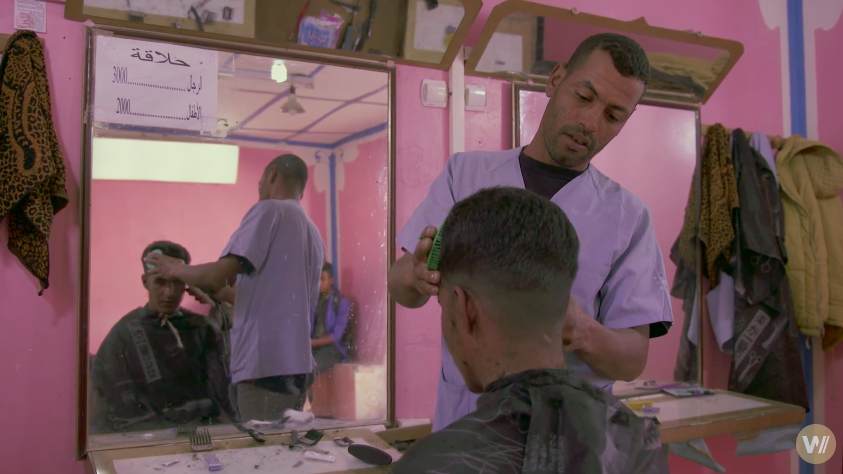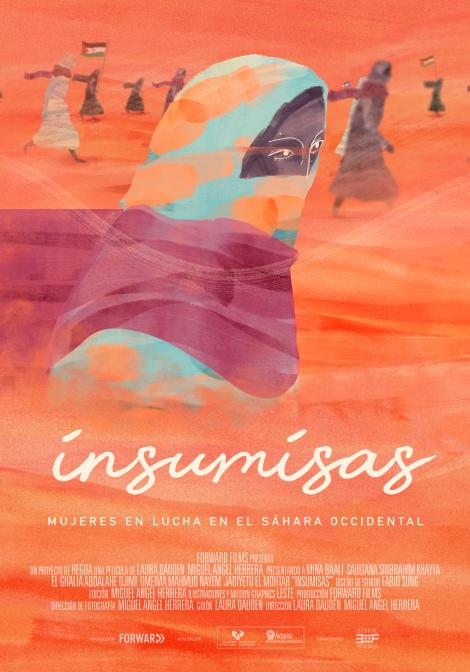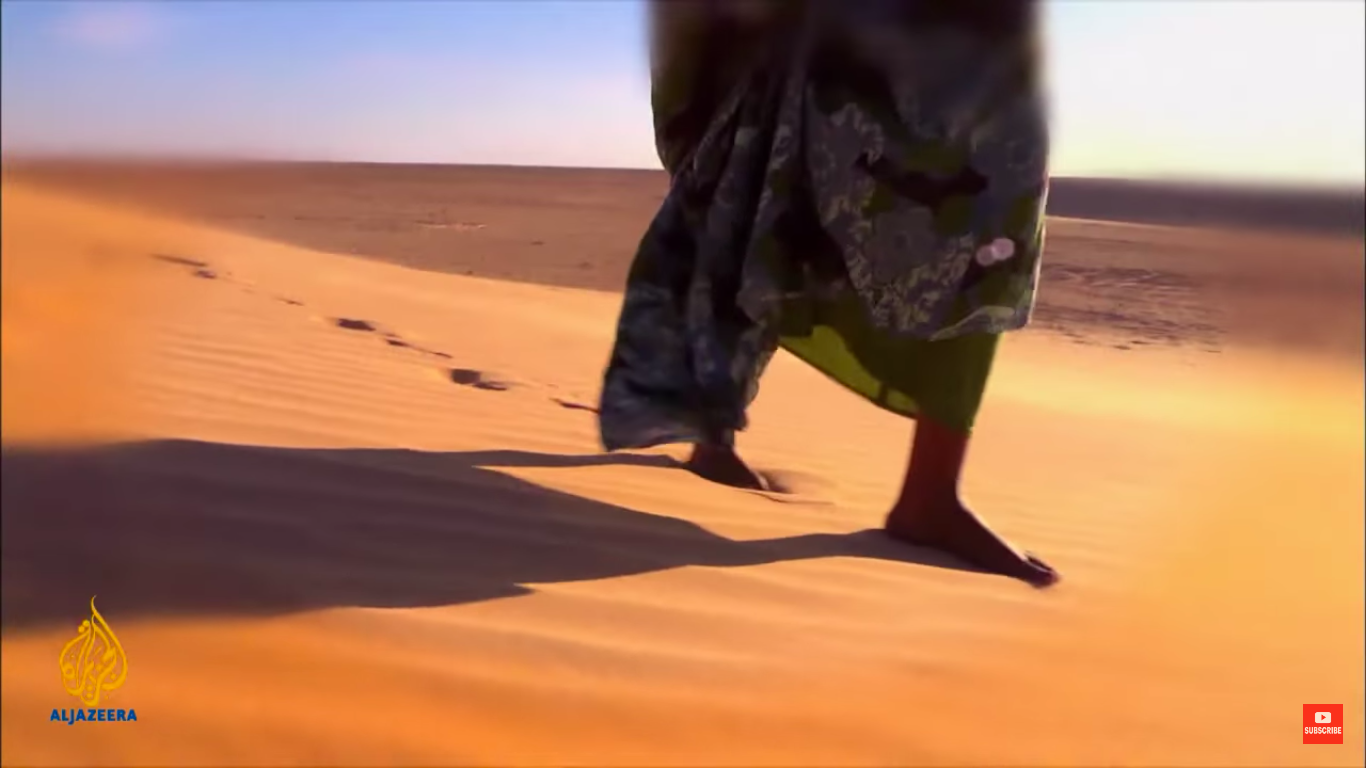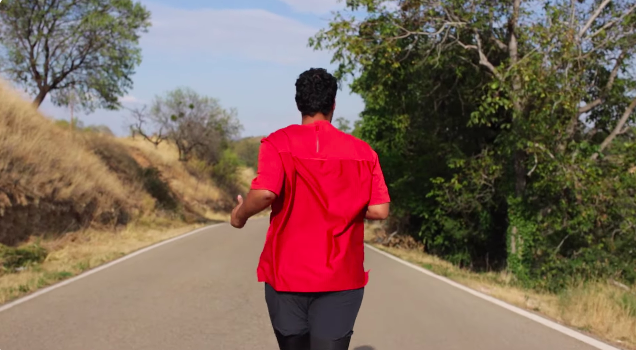Guest Blog by Kerri Molloy, Coordinator of Sandblast Arts Charity
During this special week dedicated to raising awareness and fostering empathy for the lives of refugees, we at Sandblast Arts would like to broaden the conversation and enrich your film library by highlighting the struggles of Saharawi refugees from Western Sahara. This year’s theme, “Our Home,” holds particular significance for the Saharawis, who have lived in a state of statelessness for nearly 50 years. Their journey to redefine what home means offers profound lessons from which we can all learn.
The Saharawi people, indigenous to Western Sahara, have a rich history as nomadic herders in the region spanning over 2,000 years. However, their displacement began in 1975 when Morocco invaded Western Sahara, leading to decades spent in harsh refugee camps in Algeria. Despite enduring extreme conditions, the Saharawis remain steadfast in their efforts to reclaim their ancestral lands, advocating for self-determination and international recognition through peaceful and diplomatic means.
Oral traditions and artistic expression have always been vital for the Saharawi people, allowing them to maintain cultural resilience even in the face of dire circumstances. Today, many Saharawis have turned to film as a powerful medium to express their grief, moments of joy, activism for a peaceful and just world, and, most poignantly, their longing for a sense of home.
At Sandblast Arts, we aim to amplify the voices of Saharawi artists, activists, and youth, primarily through creative educational projects. For example, Desert Voicebox, our current project, empowers and trains local Saharawi women to teach English and music education to primary school-aged children living in the refugee camps; this equips the new generations of Saharawis with the tools they need to tell their story to a broader audience and keep their culture alive. We also maintain on our website a well-stocked Media Room with a diverse collection of films, music, and literature about the Saharawis’ history and culture. Here, we have included a selection of some of our favorites.
We invite you to watch the following films to better understand the Saharawi people and their perspectives. Please share these films with friends and colleagues, and include them in any film screenings you may be holding for Refugee Week. Most importantly, we urge you not to forget the Saharawis, as much of the international community has done. They have been treated as an invisible colony for too long. Help us bring their plight to the attention of global media and leaders so their human rights of self-determination and cultural preservation no longer go overlooked.
Looking for a Homeland: Saharawi refugees at the other side of the Moroccan Wall (Barber Shop Series)
– Running Time: 25 mins
– Available to screen: YouTube
– Category: Short Documentary
– Synopsis: Filmed within the open-air structure of a local barber shop in the Smara Refugee camp, this documentary captures the candid thoughts of Saharawi men, spoken in the uniquely honest way one only shares with their barber. They discuss the conflict with Morocco, the difficulties of living in a refugee camp, and their varied perspectives on the future. You hear from one of the original resistance movement veterans, men struggling to keep their families intact, and boys who are just trying to make sense of what they learn in school of this long and complicated history of their people.
Insumisas
– Running Time: 26 mins
– Available to screen: Trailer, full documentary available upon request (info@sandblast-arts.org)
– Category: Documentary based on a written report
– Synopsis: This powerful documentary highlights the shocking true stories of violence faced by female Saharawi human rights defenders due to their activism in occupied Western Sahara. These women, who serve a triple role as researchers, activists, and survivors, have endured jail, torture, and sexual harassment. Their report, “Let Everything Come To Light,” documents four decades of human rights abuses by the Moroccan government, and as the audience we get to join them in their enduring hope that the report will spark change and mobilize the international community.
Poets of The Desert: Al Khadra
– Running Time: 25 mins
– Available to screen: YouTube
– Category: Short Documentary
– Synopsis: Al Khadra, a nomadic female elder, is a symbol of hope and resilience for the Saharawi people. This documentary, through her poetic words, guides viewers through the years of war, current life in refugee camps, and the young adult Saharawis’ role in shaping the future.
Al Khadra’s depiction of women as the driving force in the pursuit of self-determination is inspiring. Her ceaseless will and the patience required to choose poetry as her medium of resistance are humbling. Her words reflect the unwavering commitment of Saharawi women to protect and nurture their families and ensure their return to a place of prosperity.
I Certainly Don’t Know
– Running Time: 6 mins
– Available to screen: YouTube
– Category: Short Documentary
– Synopsis: This educational film effectively asks the question “What does it mean to be stateless?” In the context of defining home, stateless people are quite literally without any form of home. Meaning they don’t get to identify with where they were born, where they feel most connected to, nor where they eventually move to.
The film highlights the plight of stateless individuals in Europe and calls attention to the lack of legislation defining their rights. The rapid changes in nations’ situations and the safety of millions demand immediate attention, yet the response remains inadequate.
By sharing these films, we hope to bring the plight of the Saharawis to the forefront of international attention. Their stories of resilience, cultural preservation, and unwavering hope for a return to their homeland deserve recognition and support. Join us in amplifying their voices and advocating for their right to self-determination.
You can visit our website at sandblast-arts.org, follow us @Sandblastcharity on social media, or email us at info@sandblast-arts.org.
Image credits:
Looking For A Homeland: Image from wocomoHUMANITY (have consent)
Insumisas: Image from Miguel Angel Herrera/https://festivaldemalaga.com/en/edicion/ver-pelicula/?id=2949
Poets of the Desert: Image from Al Jazeera
I certainly Don’t Know: image from Alejandro Molano Vasquez



